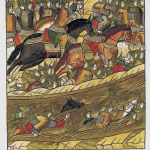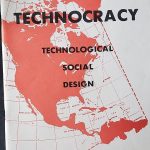12/14/2008
I was reading a story in the Washington Post today about how the city of New York is cutting a daycare program for middle-class Alzheimer’s sufferers. The program is badly needed by the families it serves, but the $1.2 million price tag and relatively low number of beneficiaries made it tempting to city government, and they cut the program. All 12 centers will close by the end of the month. Meanwhile, the hundreds of families they served are out of luck.
Once again, the question arises — why must we do without needed services provided by willing service providers just because of this arbitrary, made-up thing called money? It’s true that when viewed through the usual lens of “because that’s the way capitalism works”, you can almost rationalize hurting real people to save a buck. But when you jump up a level and look at the big picture, it just seems stupid that people go cold or hungry or without healthcare or education, because they weren’t blessed by birth or circumstance with a large enough share of the coin of the realm.
Why this seems so stupid to me is that we have the resources to make sure everyone has everything they need. We can grow the food, we have willing labor, we have people who need jobs, healthcare, education. and stuff of all kinds, and the resources to provide most if not all of that stuff. So why is it so hard to keep those goods and services moving to where they’re needed? The answer cited is money, which is scarce. Why is it scarce? There are a lot of reasons but one rather obvious cause is that it is hoarded by profiteering by entities such as banks and rich individuals who have the ability to do so.
In fact, whenever you wonder why something can’t be fixed, improved or provided, the answer is almost always that there isn’t enough money to pay for it. But that doesn’t change the fact that the need exists and the means to correct the problem are at hand. It’s just money that’s lacking despite the fact that money is really nothing more than a bartering chit, with no inherent value in and of itself except what the market says it’s worth.
Today’s economy relies on a much more complicated view of money and ways to make it. Money doesn’t just move from one to the other without the addition of interest and fees for the use of the money. Hence the complexity of getting and using money, something that should not be because money wasn’t invented to make bankers and corporations rich, it was invented to move goods and services through the economy. But here we are — it is this very practice of usury and speculation that have contributed to our present economic unraveling.
Suppose we were to uncomplicate money. What if money were to return to its earlier function as a medium of exchange, and not just play money for wealthy gamblers who like real-world challenge. Regular people could stop being pawns in their games and do what needs to be done. Civilization could take a huge leap forward as we ended hunger, unemployment, illiteracy, and all the rest. But without a major rule change, there’s no way that’s going to happen. Meanwhile, people’s needs go unmet and skills go to waste in a system where those who can’t pay, can’t play.
The Alzheimer daycare story is poignant for me as my own father has Alzheimer’s and did, until recently, receive care at a private facility in Baltimore. He needs the services, and more importantly, my mother needs the break from the near constant demands of taking care of him. I feel badly for people who are losing affordable access to this kind of help, all the more so, because apart from money, there’s no reason why they should have to.
While I don’t see a ready answer to these questions, I do feel it’s worthwhile to ask why we invented money in the first place and who it was intended to serve. Right now, it seems to be serving no one very well, giving us a golden opportunity to re-create our financial system in a way that benefits all of us, not just a relative few. After all, it’s only money.




